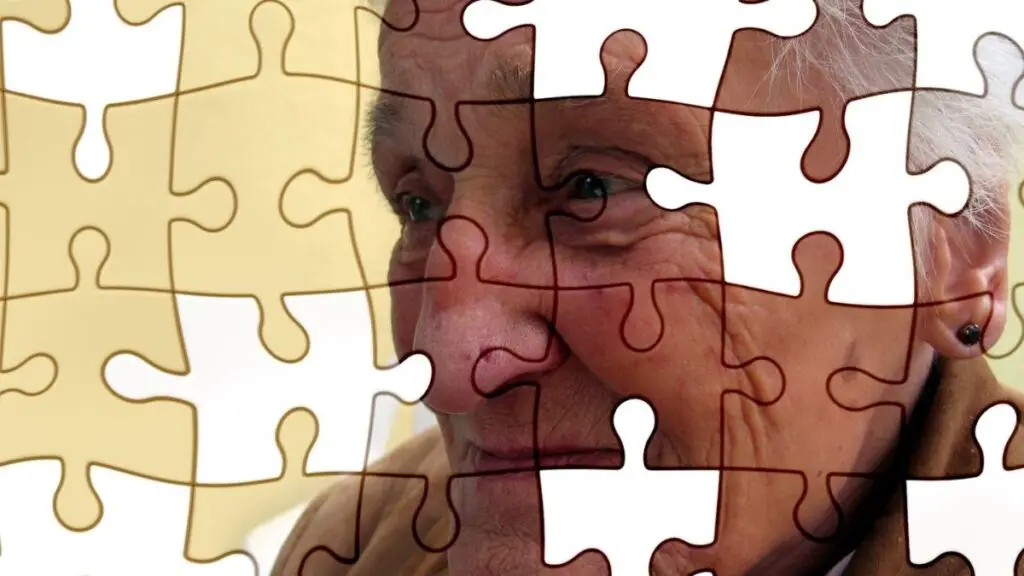As a geriatric care manager, I have seen the challenges families face when a loved one is diagnosed with dementia. It is normal for questions to arise such as:
What will be the progression of the disease? How can I prepare for increasing care needs? When is it time for hospice care?
Fortunately, the FAST Scale for Dementia answers many of these questions and can give you a roadmap of care to follow.
What is the FAST Scale for Dementia?
The FAST Scale for Dementia, also known as the Reisberg Functional Assessment Staging (FAST) Scale, is a scale designed to be used to see how patients with Alzheimer’s disease are progressing deeper into the disease. It was authored by Dr. Barry Reisberg, a leading expert in Alzheimer’s disease.
The scale has been in use for many years and is most beneficial for patients who have Alzheimer’s disease and a prognosis of six months or less. It’s specifically for those who will be accepted for hospice if they have a score of 7 or more.
Although there are other scales that focus primarily on cognitive decline, FAST places its emphasis on the patient’s ability to function and perform regular everyday tasks of living. When tested against other assessment tools for Alzheimer’s disease, FAST has been found to be a reliable and valid assessment technique for evaluating functional deterioration of patients throughout the entire course of the illness.
FAST is also a strong diagnostic and differential diagnostic aid for clinicians because the elements of functional capacity used in FAST are pretty universal and readily ascertainable. Plus they are also characteristic of the course of Alzheimer’s disease.
Download the FAST Scale
The FAST scale mirrors the 7 stages of dementia described below. The scoring is detailed in the chart below. If you want to download or print a copy, click the following PDF link:
Download the FAST Scale (PDF)
7 Stages of Dementia
There are 7 different stages of dementia used to measure cognitive decline and the progression of dementia.
| Stage 1 | Normally functioning adult | No cognitive impairment |
| Stage 2 | Normally functioning senior adult | Common decline consistent with age |
| Stage 3 | Early dementia | Difficulty following complex tasks and some forgetfulness |
| Stage 4 | Mild dementia | Frequent forgetfulness and trouble with tasks |
| Stage 5 | Mid-stage dementia | Trouble with daily living tasks and can no longer live alone |
| Stage 6 | Moderately severe dementia | Needs 24/7 supervision and assistance |
| Stage 7 | Severe (end stages) of dementia | Near total loss of physical and communication abilities |
Stage 1 – Normal Functioning Adult
There is no real difficulty with cognitive or functional decline.
Stage 2 – Normal Functioning Senior
Stage 2 describes normal age-related forgetfulness. There could be memory lapses, misplacing items or some word-finding difficulties.
Stage 3 – Early Dementia
At this stage, you may notice your loved one begin to show some subtle signs of cognitive impairment that might only be noticeable to family and friends. The person may tell the same stories over and over again and performing complex tasks such as taxes or finances becomes challenging.
Stage 4 – Mild Dementia
At stage 4, cognitive decline becomes more noticeable. Memory problems may include forgetting what year or month it is. Although your loved one may still be independent in most activities of daily living, more complex tasks such as planning meals, and paying bills becomes increasingly challenging. In my experience, this is the point at which concerned family members request cognitive testing to diagnose dementia.
Stage 5 – Mid-Stage Dementia
At this stage, your family member is unable to function independently. They require help with bathing, dressing, meal preparation, and transportation. Mobility may become impaired and there is a heightened risk of falls. You may consider a memory care community at this point to keep your loved one safe.
Stage 6 – Moderately Severe Dementia
Stage 6 describes late-stage or severe dementia and the person requires 24/7 supervision either in memory care or with round the clock caregivers. Problems with speech and all aspects of self-care are common at Stage 6. Mobility worsens and urinary, and fecal incontinence are common.
Stage 7 – Severe Dementia
Stage 7 is the final stage of dementia, where communication has ceased or speech is unintelligible. Most people at this stage are bed-bound and require hospice care.
| Functional Assessment Scale (FAST) | |
|---|---|
| 1) | No difficulty either subjectively or objectively. |
| 2) | Complains of forgetting location of objects. Subjective work difficulties. |
| 3) | Decreased job functioning evident to co-workers. Difficulty in traveling to new locations. Decreased organizational capacity. * |
| 4) | Decreased ability to perform complex task, (e.g., planning dinner for guests, handling personal finances, such as forgetting to pay bills, etc.) |
| 5) | Requires assistance in choosing proper clothing to wear for the day, season or occasion, (e.g. pt may wear the same clothing repeatedly, unless super-vised. * |
| 6) | Occasionally or more frequently over the past weeks. * for the following A) Improperly putting on clothes without assistance or cueing . B) Unable to bathe properly ( not able to choose proper water temp) C) Inability to handle mechanics of toileting (e.g., forget to flush the toilet, does not wipe properly or properly dispose of toilet tissue) D) Urinary incontinence E) Fecal incontinence |
| 7) | A) Ability to speak limited to approximately < 6 intelligible different words in the course of an average day or in the course of an intensive interview. B) Speech ability is limited to the use of a single intelligible word in an average day or in the course of an intensive interview C) Ambulatory ability is lost (cannot walk without personal assistance.) D) Cannot sit up without assistance (e.g., the individual will fall over if there are not lateral rests [arms] on the chair.) E) Loss of ability to smile. F) Loss of ability to hold up head independently. |
| *Scored primarily on information obtained from a knowledgeable informant. Psychopharmacology Bulletin, 1988 24:653-659. |
Hospice Care and the FAST Scale
Hospice care is valuable comfort care for people at the end of life. Dementia is a terminal disease, but not everyone with dementia will qualify for hospice. Unless your loved one has another terminal medical condition that could qualify them for hospice, Medicare requires a FAST Scale of 7 to be admitted to hospice care. The FAST Score can also assist hospice care staff tailor their services to the needs of the patient.
Hospice Eligibility Criteria
Hospice eligibility criteria is set by Medicare and most commercial insurance plans follow their criteria, which includes the following:
- Your Doctor Must Certify That You Have a Terminal Illness. The expectation is that you have approximately 6 months to live.
- You Agree to Accept Comfort Care. You can seek treatment for conditions unrelated to your hospice qualifying condition, but not for the illness that qualifies you for hospice.
- You Sign an Agreement That You Choose Hospice Over Other Medicare-Covered Treatments for Your Terminal Condition.
Hospice care can last more than 6 months and some people go on and off hospice. You can revoke hospice at any time and resume treatment for your terminal condition. One important fact about hospice: you will not receive 24-hour care. Hospice nursing is available 24/7 but if you need assistance during the day or at night you will have to arrange private caregiving unless you are in assisted living.
If you have questions about your eligibility for hospice care, speak with your primary care physician. Families are often conflicted about hospice and whether to give up treatment. Your physician can inform you about your medical diagnosis and prognosis which can help you decide.
Summary
The FAST scale for dementia is a good tool for caregivers, family members, and health practitioners. It is but one tool, however. If you want to look at other tests and tools, I suggest reading our article on Memory Tests for Dementia.
Do you have experience with the FAST scale for dementia? Let us know in the comments section below.
About the Author
Amanda has co-authored two books related to aging: Aging with Care: Your Guide to Hiring and Managing Caregivers at Home and Choose Your Place: Rethinking Home As You Age.
References
Sclan, S.G. and Reisberg, B. Functional assessment staging (FAST) in Alzheimer’s disease: reliability, validity, and ordinality. Int Psychogeriatr 1992;4 Suppl 1:55-69. https://pubmed.ncbi.nlm.nih.gov/1504288/
Fick, Donna M., et al. Delirium superimposed on dementia is associated with prolonged length of stay and poor outcomes in hospitalized older adults. J Hosp Med 2013 Sep;8(9):500-5. https://pubmed.ncbi.nlm.nih.gov/23955965/



4 comments
I am in the process of this with my husband. the lack of drs who know anything is astounding and mine crosses tons of stages depending on the day. for variant dementias, this is not helpful at all till the last part. they dont follow a path or stage, there is almost no help out there, no drs who know anything and still deny he even has dementia. Society needs to wake up! heading to our 6th neuro. I hope he is useful. Scary, lonely path to walk. FAST is not even realistic. Nor how to cope with them in the meantime. Hospice is needed way before any stage 7. Most dont even do stage 7. They go from walking to gone in a week. We need real info,,,helpful info esp for those who dont have Alz but other kinds. FINALLY he made 21 on the mini mental without a dr helping him. Opens up more support and validation. But I cant find any medical people who know much at all. or want to know. No help, and its tough out here with this. What exactly do you DO when it isnt stage 7 and you cant deal with them? Good question. I have found no answers YET in 10 yrs and now he has tipped into dementia from CI.
My husband is currently not wanting to put on his pajamas at night, opting to sleep in his clothes, including his coat. He has also has stopped flushing toilet paper, opting to put it into the bathroom trash can instead. Does this put him at step 6C on the FAST scale?
My mother recently passed away after 8 months of hospice care for ischemic Dementia. The Fast Score is accurate of her disease process. This is an excellent tool for medical personnel in evaluating a person with dementia,
Sorry for your loss, Marsha.